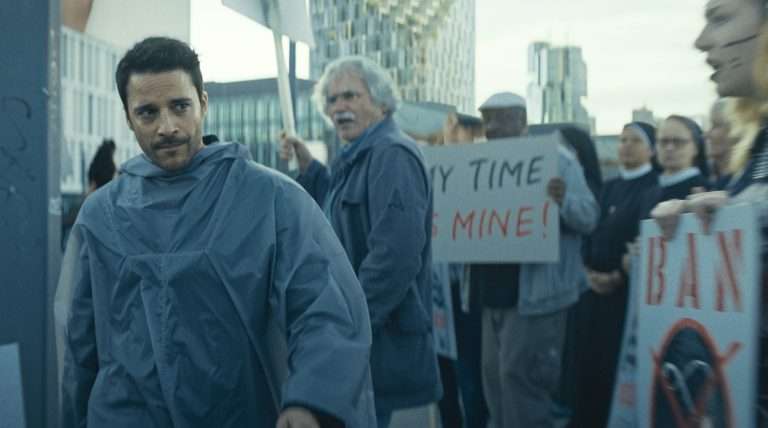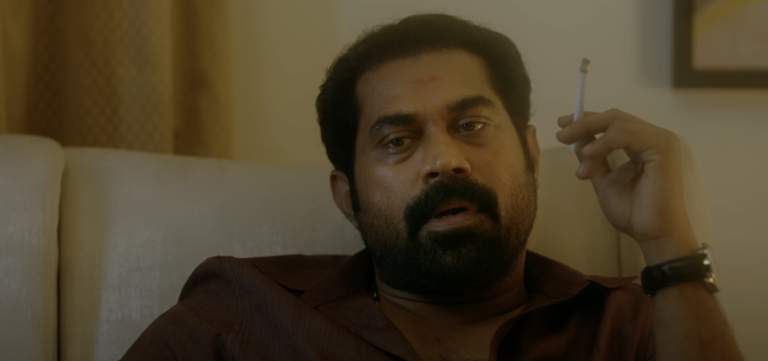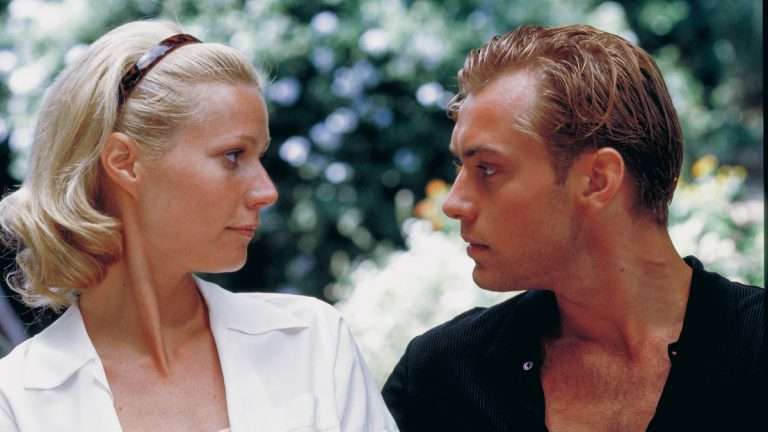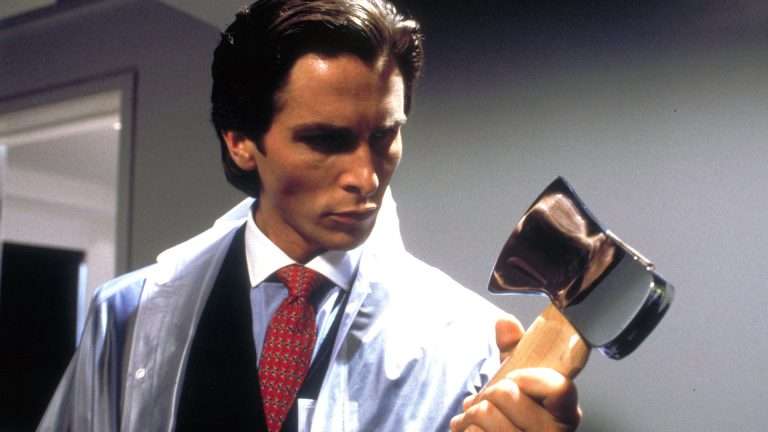Witness for the Prosecution (1957) Movie Ending Explained: Billy Wilder’s Witness for the Prosecution (1957) is based on Agatha Christie’s 1925 short story, Traitor’s Hands. The story was published in a 1933 short story collection under its current title. The author herself adapted it into a play. Later, in 1954, Lawrence B. Marcus turned the story into a Broadway play, which is the basis for Billy Wilder and Harry Kurnitz’s script for the 1957 version. Billy Wilder’s Witness for the Prosecution became one of the most critically acclaimed and popular among Agathe Christie’s page-to-screen versions. Moreover, this film, alongside Sidney Lumet’s 1974 adaptation of Murder of Orient Express, has been the author’s favorite movie adaptation of her stories.
While the story and play largely unfold inside a courtroom, and Leonard Vole is the central character, Wilder cleverly casts the legendary Charles Laughton as the defense lawyer appearing for Vole, and naturally, Laughton’s splendid comical performance captures our attention as much as the central mystery. The thoroughly entertaining banter between Laughton and Elsa Lanchester provides the perfect comic relief to the courtroom tension. Apart from these two extraordinary performers, Witness for the Prosecution is blessed with the presence of Hollywood’s Golden Age Star, Marlene Dietrich, and the dashing lead of romance and adventure flicks, Tyrone Power.
Recommended: 25 Great Trial Films of All Time, Ranked
Billy Wilder’s Witness for the Prosecution is one of the evergreen classics of the courtroom drama genre. It is ranked 6th in the American Film Institute (AFI) top ten list of courtroom dramas. Released before Alfred Hitchcock’s Psycho and after Henri Georges Clouzot’s Les Diaboliques, the advertisement campaigns of these films requested their audience not to spoil the film’s ending for others. Contemporary audiences might find the final resolution of Witness for the Prosecution too neat and moralistic (remember those were the Hays Code days in Hollywood), yet apart from the twist, there’s a lot to admire in Wilder’s terrifically executed tale of murder, betrayal, and greed.
Now, let’s delve into all the narrative aspects of Witness for the Prosecution, including its fantastic ending. Spoilers Ahead.
Witness for the Prosecution (1957) Movie Plot Explained:
Wilfred Robarts Is Back
Set in post-war 1952 London, Billy Wilder’s Witness for the Prosecution opens in a courtroom before shifting to Sir Wilfrid Robarts (Charles Laughton), a crafty, cantankerous, and cynical barrister nearing retirement age, who is traveling in a car from the hospital to home – after getting treated for his weak heart – with his garrulous and bossy nurse, Miss Plimsoll (Elsa Lanchester). Wilfrid reaches home, wearing a morose expression, and doesn’t look forward to the tedious convalescent phase. The ever-vigilant nurse Plimsoll has planned a strictly regimented lifestyle for Wilfrid, but it’s easier said than done.
Sir Wilfrid’s staff are elated to see him, but the barrister receives it with his characteristic grumpiness. He expresses some affection for his chief clerk, Carter (Ian Wolfe), by saying, “Missed you, you musty old buzzard.” It has been thirty-seven years since Carter started working for Wilfrid. The barrister recalls the nervous days of his first murder trial. Carter briefs Wilfrid about ‘nice smooth cases’ like tax appeals and insurance claims since the doctors have advised Wilfrid against taking criminal cases.
Nurse Plimsoll intrudes on their conversation and reminds Wilfred it’s his nap time. She also cleverly confiscates the cigarettes Wilfrid has hidden in his cane. As Wilfrid is about to climb the stairs to his room, Carter shows him the freshly installed stair lift. Though Wilfrid initially protests for treating him like a ‘helpless invalid,’ he plays with the controls of stair life like a child, deliberately annoying Miss Plimsoll. Mayhew (Henry Daniell), a solicitor and Wilfrid’s friend, arrives to meet the barrister on a ‘serious criminal matter.’
The Murder of Emily French
Wilfrid is introduced to Mayhew’s client, Leonard Vole (Tyrone Power), an affable and gregarious man. Since Wilfrid can’t take up anything too stimulating, he tries to leave upstairs in the stair lift, but upon seeing cigarettes in Mayhew’s suit pocket, he guides Mayhew into his home office. The situation is pressing for Mr. Vole as he says he might soon get arrested for murder. Mayhew briefs Wilfrid about the Emily French (Norma Varden) case, a 56-year-old wealthy and lonely widow who had been murdered recently. Vole was allegedly the last individual to see Emily French before she was found by her housekeeper, Janet McKenzie (Una O’Connor).
Though Vole is suspected based on circumstantial evidence, Mayhew feels it’s enough to send him to the gallows. Mayhew asks for Wilfrid’s perception even if he is not taking the case. The central challenge for the defense will naturally be establishing Vole’s alibi on the night of the murder. Subsequently, Vole is called into the office since Wilfrid desperately needs a match to light his cigarette. Vole finds the notion of him murdering Emily French absurd. Still, he has reached out to his solicitor on the advice of his wife, Christine.
Leonard Vole doesn’t look anxious at all. He isn’t even worried about being wrongfully accused as if that never happened in Britain. Mayhew emphasizes that Vole is a model citizen with no criminal record and a war hero. When Vole gradually learns how the case is stacked against him, he looks a little distressed. Nevertheless, Wilfrid says he can’t take the case, citing health reasons and recommending Mr. Brogan-Moore (John Williams). Wilfrid asks Carter to call Brogan-Moore and meet Wilfrid at the home office.
Who Is Leonard Vole?
Nurse Plimsoll castigates Wilfrid for his recklessness, but he shuts the door on her. While waiting for Brogan-Moore, Wilfrid questions Vole about his life. Leonard Vole is currently unemployed. He has done different jobs but could never hold on to one. Vole met his wife, Christine in Germany while serving in the Royal Air Force during WWII days. He praises Christine as an excellent wife who had been an incredible performer in Germany. But Vole laments that he hasn’t been able to provide for her.
Vole calls himself an inventor of little household things, like keychain flashlights and pocket pencil sharpeners. He believes he can conquer the market with his ‘revolutionary’ egg-beater. But Vole doesn’t have the funds to manufacture and advertise his projects. He believed his acquaintance with Emily French would benefit him in his endeavors. This leads to the story of how Leonard Vole met Emily French.
How did Leonard Vole Meet Emily French?
Leonard Vole first encountered French while looking through a hat-store window. He wordlessly selects a suitable hat for her. A few weeks later, he meets her accidentally at a theater. At this point, Vole mentions he didn’t know French was rich. Mayhew fills in a detail about Emily French. She lived with her husband in British Nigeria, and after he died in 1945, Emily French returned to London. After the movie, French invited Vole for tea at her luxurious home. Vole demonstrates his egg-beater in the kitchen. While French fawns over Vole, the prickly and old housekeeper, Janet is wary of the young man’s intrusion into her domain.
The woman’s living room is filled with African masks and collectibles from her days in Nigeria. Emily French is jubilant to have a company, and from then on, they meet once or twice a week and share a bottle of sherry. On the day of the murder, Vole met French at her home around 8 pm. After chatting a bit, Vole says he left by nine and walked home to reach at 9:30. Having silently listened to Vole’s version of events, Wilfrid starts asking a few pertinent questions, starting with how much money he received from Emily French.
Wilfrid Subjects Leonard Vole to the Monocle Test
When Vole wonders why the woman would give him money, Wilfrid strikes into the heart of the matter: “Because she was in love with you.” Vole dismisses that notion and considers French to be a pampering aunt. Wilfrid persists with his grilling by questioning why Vole didn’t tell French about his wife, Christine. And if French knew about Christine, why didn’t Vole take his wife with him to meet French? Wilfrid simply dismisses Vole’s answers, declaring the man was after her money. While posing these unsettling questions, Wilfrid casually polishes and wears his monocles. Now facing Vole, Wilfrid reflects sunlight from his monocle into Vole’s face. It’s Wilfrid’s usual method of cross-examining his clients by testing the truthfulness of their accounts.
During this cross-examination, Vole admits he hoped for a couple of hundred pounds as a loan from Emily French. But it was only an honest business proposition. As Wilfrid’s questions get more pointed, Vole vehemently protests his innocence without flinching at the reflected sunlight. Eventually, Wilfrid is convinced of Vole’s innocence and apologizes for putting him in that ordeal. But Wilfrid says it doesn’t look good for Vole. He doesn’t have an alibi. No one except his wife saw Vole after arriving home. Vole says the exact time when he returned home was 9:26 pm. However, Wilfrid rightfully states the wife’s testimony won’t carry much weight.
To Whom did Emily French Leave her Riches?
Mr. Brogan-Moore arrives at this point. Wilfrid introduces Vole and states Moore’s line of defense could be the lack of motive. If Vole is supposed to sponge off French, it makes no sense to kill her. Subsequently, Wilfrid mentions that Vole is so broke that Brogan-Moore has to sue him for fees. The lawyer replies that Vole can pay him from the 80,000 pounds he inherits. Brogan-Moore reveals that Emily French has left all her money for Vole. Vole, displaying his characteristic naivete, is initially happy about Emily French’s will. But the grim looks of others sink in, and he understands how bad this looks. So now Leonard Vole has the perfect motive to murder Emily French.
Soon, the Chief Inspector appears to arrest Vole. After he leaves, Brogan-Moore confesses it’s a very tricky case, even though he might have passed Wilfrid’s ‘monocle test.’ Carter makes his entry and entreats Wilfrid to take some rest. Before climbing the stairs, Wilfrid advises Brogan-Moore to delicately break the news of Vole’s arrest to his wife, Christine. Since Christine is a foreigner, he warns, she might have a fainting spell and, hence, be ready with a box of tissues and smelling salts.
Christine Makes Her Entry
“I do not think that will be necessary,” a voice interrupts. Wilfrid and Brogan-Moore see a woman standing in the doorway, looking dignified and extremely calm. She is Chrsitne Vole (Marlene Dietrich). Wilfrid appreciates Christine for taking the news of her husband’s arrest with such fortitude. He excuses himself and leaves upstairs for a nap. But after getting upstairs, Wilfrid, perhaps curious about the enigmatic Christine, silently leaves the room as Plimsoll keeps speaking while preparing the bed. At the office, Wilfrid observes Christine as she answers Brogan-Moore’s questions regarding Vole and French’s relationship.
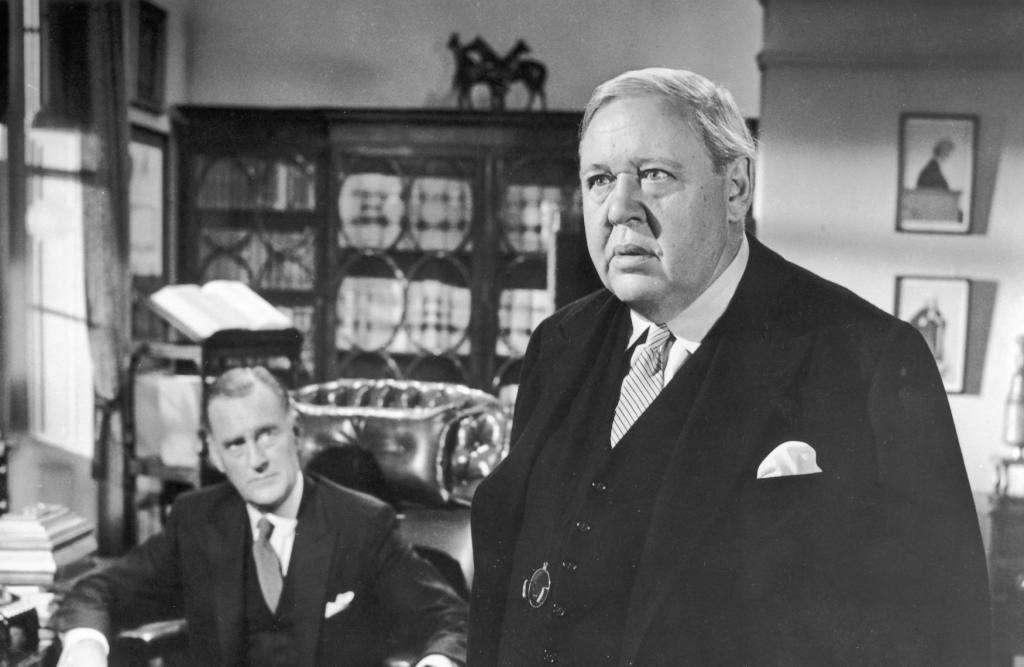
Christine conducts herself in a cold and calculated manner. She doesn’t seem like the loving and faithful wife Leonard Vole described to Wilfrid. Christine raises skepticism over her husband having no prior knowledge about French’s will. When Brogan-Moore proposes French might have seen Vole as a son or nephew, Christine scoffs at the idea. Now, Wilfrid takes over the questioning and puts Christine through his ‘monocle test.’ Instead of enduring the test, she walks over and closes the window blinds. Christine also slyly suggests Vole might have lied about the time he returned home on the night of the murder. Wilfrid asks if it’s correct that Vole reached home before 9:30. To which Christine answers with a question: “Isn’t that what he wants to say?”
What’s Wrong with Christine?
Christine wonders if her foreign accent will make her less believable in front of the jury. Subsequently, Christine puts a performative act as if she is in a witness box. When Wilfrid questions, “Do you love your husband”? She cynically replies, “Leonard thinks I do.” Wilfrid declares that Christine can’t be called as a witness for the defense since her testimony will likely be damaging to Vole. Now, Christine drops another bombshell, stating Leonard Vole is not even her husband. She was already married before meeting Vole; her first husband is living somewhere in East Germany.
Christine didn’t tell Vole about her previous marriage; she simply agreed to marry Vole to get out of her war-torn country. Vole already spoke of her supreme talent as a ‘performer,’ and it looks like Christine has been perfectly ‘playing’ the role of dutiful wife. Although Vole is obsessively in love with her, Christine says she has got tired of him. Christine says goodbye, and before leaving, she insists that she will be convincing in her testimony before the jury.
After Christine leaves, Brogan-Moore is not sure about Vole’s innocence. But Wilfrid doesn’t feel that way, and he probably sympathizes with Vole even more after the discouraging chat with the cold-hearted Christine. Therefore, Wilfrid Robarts decides to appear as Vole’s defense lawyer in the murder trial of Emily French.
When and How Did Leonard Vole and Christine Meet?
A couple of weeks later, Wilfrid and Mayhew meet Leonard Vole at the prison. Vole expresses despair and questions why Christine hasn’t come to see him. Wilfrid reads to Vole, the housekeeper, Janet’s statement about Vole helping French file her income tax returns. In the statement, Janet hints that Vole might have aided French in drafting her new will. Vole denies it and adds Janet has always been against him. Now, Wilfrid’s focus turns to a cut in Vole’s wrist. Vole says he cut himself while slicing bread with a knife, which happened two days after the murder. But the only witness to this accident is once again Vole’s wife, Christine.
Wilfrid then questions Vole about how he met Christine in Germany. Vole recalls an episode in 1945, Hamburg, as he got into a beer hall. While the poster hints at a cabaret performance from Christine Helm, inside the hall, Christine, fully cloaked in black, carries an accordion and sings a song. The drunk and aggressive soldiers harass her to ‘show some legs.’ A fight ensues, and the military police arrive at the spot to take away the soldiers. Vole silently observes all this without getting caught. Then, he chats with Christine and offers her a cigarette and a tin of coffee to get invited to her cellar room.
She wears a wedding ring, but when Vole asks about it, she says it’s only a ploy to keep away men. Christine kisses him for the coffee, and as Vole showers her with more food items, she gifts him with more kisses. The flashback emphasizes the business transaction-type relationship between Christine and Vole, although it’s hinted that Vole truly loved her. Christine might have seen Vole as a ticket out of the hopeless place. When Wilfrid implies the same, Vole proclaims Wilfrid doesn’t know the depth of his wife’s love for him. At this point, Wilfrid says he is not putting Christine in the witness box, bringing up her German identity, which might not make her endearing to the jury.
What does the Inspector’s Testimony Establish?
The narrative now shifts to the courtroom on the first day of the trial. Leonard Vole pleads not guilty to the murder charge of Emily French. Mr. Myers (Tom Thatcher) appears on behalf of the prosecution, who, in his opening address, highlights the case’s ‘simple facts.’ Emily French was murdered between 9:30 and 10:00 pm on October 14. She was struck with a heavy and blunt instrument by – as the evidence and experts will prove – Leonard Vole. Wilfrid Robarts is yet to reach the court premises as the first witness, Chief Inspector Hearne, takes the stand.
Wilfrid is at the hospital, getting treated for his high blood pressure. As usual, Plimsoll is full of complaints about Wilfrid’s behavior. The doctor recommends to take the prescribed medicines. Wilfrid enters the courtroom in the middle of Inspector Hearne’s testimony. The prosecution establishes that the police found three fingerprints at the victim’s home: Emily French, Leonard Vole, and Janet. The inspector also says the bloodstains in Leonard Vole’s jacket were type O – French’s blood type. In his cross-examination, Wilfrid raises some doubts in the jury’s mind that the killer could have worn gloves. Furthermore, Vole’s blood type is also O, and Wilfrid adds that the bloodstains could be from the accident of cutting bread in his household.
Does Janet have an Ulterior Motive in Testifying Against Leonard Vole?
The next prosecution witness is housekeeper Janet McKenzie. As Janet takes the stand, Plimsoll signals Carter to give Wilfrid his pill. Janet’s testimony establishes that on October 14th, Friday night, she went out to see her niece. Since she forgot to take a dress pattern, Janet returned home at 9:25. According to Janet, as she was passing the living room, she could hear Vole and French talking and laughing. But Janet didn’t see them and went upstairs to collect the dress pattern. Janet left and returned at 11:20 to find her mistress dead and the living room ransacked. When prosecutor Myers asks if Janet knew Vole was married, she replies neither her mistress nor herself knew that Vole is married.
Wilfrid objects to the question, insisting it’s pure conjecture on Janet’s part to bring Emily French’s knowledge on the subject. As the prosecution examines the witness, Wilfrid is seen playing with his pills, neatly arranging them in grids in order to find some order in the chaos. Janet is sure that Vole was present when the French’s will was redrawn nearly a week before the murder. In the cross-examination, Wilfrid establishes that the bulk of French’s estate and money went to Janet McKenzie in the old will. Now, the housekeeper will only receive a small annuity. Wilfrid hints that Janet’s testimony is clouded by her resentment towards Vole. Janet denies it, but she calls Vole ‘a scheming shiftless rascal.’
Next, Wilfrid brings the jury’s attention to Janet’s claim that she heard Vole and French talking in the living room at 9:25. Wilfrid questions if the voices could be from a TV. But Janet loudly asserts that the TV was away at a repair shop. Wilfrid then brings up the fact that Janet has applied for National Health Insurance for a hearing aid. Wilfrid deliberately says the word ‘hearing aid’ in a normal tone of voice, making Janet ask, ‘What”? Subsequently, Wilfrid wonders how Janet could clearly hear the voices of Vole and French through a four-inch thick oak door, and that too while being in a hurry to go upstairs.
Who Is the All-Important Witness for the Prosecution?
Wilfrid’s cross-examination of both the witnesses establishes the circumstantial nature of the prosecution’s evidence. It doesn’t prove Vole’s guilt beyond a reasonable court. But the prosecution springs up a surprise on Wilfrid and Leonard Vole on the trial’s third day. Mr. Myers calls Christine Helm as the witness for the prosecution. Wilfrid objects to this since Christine is the defendant’s wife. Myers says he called her as ‘Helm.’ Christine confesses to the fact that’s already known to Wilfrid but not to Vole, i.e., she is married to a German (Otto Ludwig Helm), and he is still alive. Christine produces a certificate confirming that she married Otto Helm in 1942.
To Myers’s question about Vole’s time of return on the day of the murder, Christine renounces her original statement and says her husband only came back home at 10:10 pm. Unable to process his wife’s transformation as a hostile witness, Vole breaks down twice in the courtroom. Christine says Vole looked distressed after returning from French’s home and confessed, “I’ve killed her.” Moreover, Christine mentions it was Leonard Vole who asked her to tell the police that he was at home by 9:25.
Is Christine Helm a Habitual Liar?
Christine has agreed to lie for Vole out of gratitude because he brought her to the country. But she never loved him. And Christine asserts that she doesn’t want to be an accessory in the murder of a harmless woman. Wilfrid questions the witness’s credibility in the cross-examination since Christine has repeatedly lied. She deceived Vole in Germany by hiding her marital status. She lied to the authorities while arranging for the marriage, and most importantly, Christine made Vole believe that she genuinely loved him. And, of course, she lied to the police in her statement. Hence, Wilfrid wonders if she was lying then or if she is lying now.
Prosecutor Myers inquires Christine if she is aware of what perjury means. Christine replies she knows what perjury is, and she firmly stands by the veracity of the account she has now presented in front of the jury. In the audience members section, a young woman following the trial from the first day, alongside nurse Plimsoll, sheds tears for Vole, believing in his innocence. Plimsoll consoles the woman, and such is the intensity of Christine’s damning testimony.
Things Don’t Look Good for Leonard Vole
On behalf of the defense, Wilfrid calls Leonard Vole to the stand. He just asks the man one question. Whether he murdered Emily French on October 14th or not. Vole replies to the question with an emphatic ‘I did not.’ In the prosecution’s cross-examination, Myers questions Vole about his knowledge of the redrawn will. On the day the will was redrawn (October 8th), Vole was seen at a travel agency with a woman (neither Christine nor Emily French) inquiring about luxury foreign cruises. When Myers brings this up, Vole states it was just a silly thing he did. He met a woman at the pub – a total stranger – and while passing the travel agency, they just put up an act to irk the man inside, who gave them ‘a funny look.’ Myers brings up Christine’s testimony. Vole once again breaks down as if his whole world is crashing down.
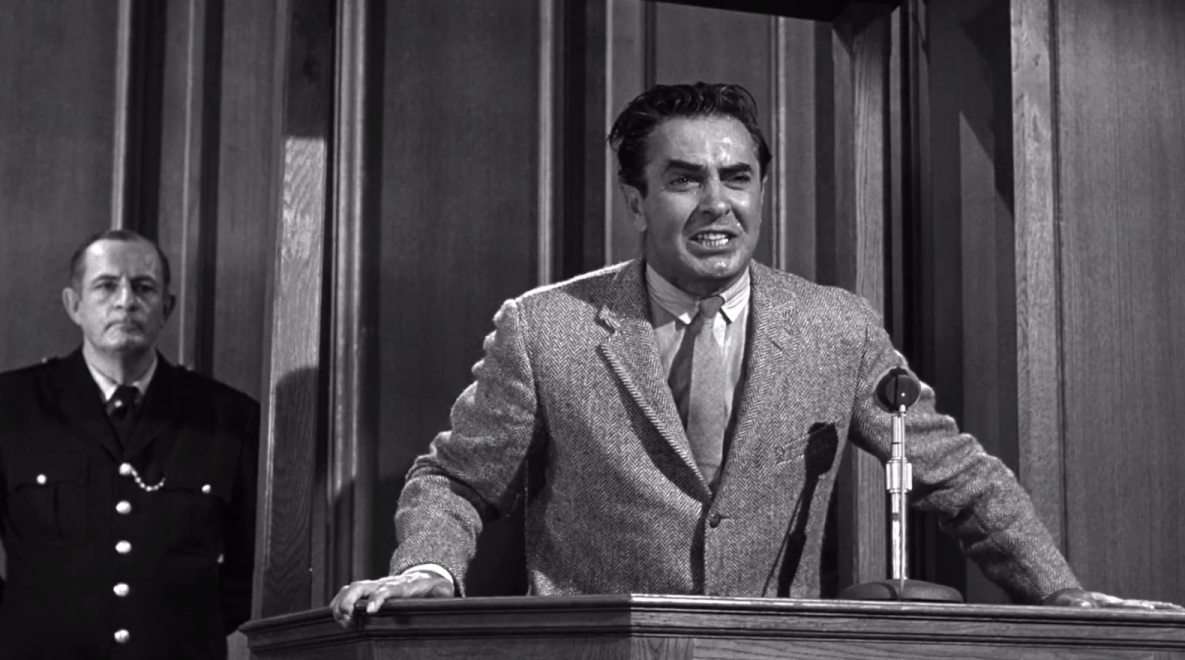
Wilfrid returns home with his staff, feeling dejected. Brogan-Moore thinks it’s an open-and-shut case now, and the jury may rule against the defendant. He says the jury might not have liked Christine but believed her. Wilfrid is convinced that Christine lied on the stand, but he is unsure why. The phone rings at Wilfrid’s office, and Carter picks it up. An anonymous woman with a Cockney accent asks for Wilfrid Robarts. The woman says it’s related to Vole’s wife, Christine. She asks Wilfrid to meet her at the buffet of Euston Station within thirty minutes. Wilfrid and Mayhew rush to the station to find the mysterious woman.
What is the Key Evidence the Mysterious Woman Provides?
The woman says she has letters Christine wrote to her lover named, Max. The letters might discredit Christine’s testimony, and the woman receives forty pounds for the service. The woman is driven by vengeance, as she shows a deep scar on the right side of her face near the ear. “Wanna kiss me, duckie?” the woman asks Wilfrid, showing her scar. She says it was given to her by her boyfriend when she inquired about his relationship with Christine. The woman accuses Christine of stealing her lover. The letter evidence clearly shows that Christine perjured on the stand to get rid of Leonard Vole to be with her lover, Max.
Wilfrid the Fox Exposes the Lies
The following morning in the trial, Wilfrid requests the judge to include startling evidence that has just come to his attention. Despite Myers’ objection, Wilfrid cites prior cases where such evidence was allowed at the trial’s final stages. Wilfrid calls Christine to the stand after showing the letters to the judge. He hides the letters and takes another piece of paper in his hand. As if reading the letter, he questions Christine about Max. The calm and composed now looks visibly distressed and vehemently denies knowledge of anyone named Max or having written any love letters. Wilfrid starts reading the letter’s contents as Christine calls it a forgery. She states she only writes letters “on small blue papers with my initials on it.” Now Wilfrid reveals the original stack of letters and asks, “Like this”?
Christine is stunned. In the audience section, Plimsoll mentions to the young woman the barrister’s nickname, “Wilfrid the Fox!” Now, it is Christine’s turn to break down. Wilfrid reads the contents of a letter further. Christine has written to Max that the murder case against her husband is their chance to be together. In the stand with a tear-streaked face, Christine agrees that she wrote the letter. Wilfrid rests the case.
Witness for the Prosecution (1957) Movie Ending Explained:
Here Comes the Twist!
The jury doesn’t take much time to return with a ‘not guilty’ verdict. Leonard Vole heartily thanks Wilfrid and leaves with his solicitor, Mayhew, and the police to wrap up a few formalities. But even after getting the verdict he desired, something is nagging Wilfrid Robarts. Outside the courtroom, Christine is assaulted by enraged spectators. She is brought inside and will soon be charged with perjury. Once they are alone in the courtroom, Christine casually mentions how the great Wilfrid won the case with help, and that too, from a witness for the prosecution. It had been Christine’s strategy all along when she heard Wilfrid say a jury wouldn’t believe the testimony of a suspect’s dutiful wife.
Hence, she has efficiently played the role of a double-crosser and a ruthless wife. Rather than prove Vole’s innocence, Christine designed a strategy where the trial’s outcome was solely based on Wilfrid exposing Christine as a liar. Just as Wilfrid understands the depth of her cunning plan, Christine slips into the Cockney accent, “Wanna kiss me, duckie”? An appalled Wilfrid says, “I suspected something, but not that.” Christine says it’s been a long time since she has played such a vital role. When Wilfrid questions why she didn’t trust him enough to win the case honorably, Christine drops another bomb: Leonard Vole isn’t innocent; he indeed killed Emily French and returned home at 10:10 with blood on his jacket sleeves.
Who Betrayed Whom?
Christine confesses her profound love for her husband for the first time in the narrative. Vole is back in the courtroom, listening to their conversation. He compliments what a great actor his wife is. Vole knew she’d cook up something to save him, but he didn’t expect such an elaborate plan. Wilfrid is distressed that Vole has made a fool of not only his lawyer but also the whole judiciary system. Nurse Plimsoll enters the courtroom to take Wilfrid for his much-needed vacation. She is accompanied by the young woman, who has been keenly following the trial from the first day. Vole and the young woman embrace, and he calls her Diana. It’s evident that Vole has had an affair with the woman for months. This is the same woman with whom Vole visited the travel agency.
It dawns upon Christine that she is the true victim of betrayal. Vole dismisses her claims of love and says he helped her get out of Germany, for which she helped him get out of the murder charge. They are even now. Then, he shoves her aside. Christine looks at the knife in front of her (the evidence the defense procured to show Vole cut his wrist while slicing the bread) and stabs her husband. Nurse Plimsoll pronounces that Vole is dead. The police take away Christine. Knowing Wilfrid won’t be able to take his vacation, Plimsoll asks Carter to cancel the tickets. Wilfrid announces he will appear for defense in the trial of Christine. Witness for the Prosecution ends with a voice requesting the audience not to divulge the ‘secret of the ending.’
How Does ‘Witness for the Prosecution’ Set Up Its Extraordinary Twist?
There has been a debate on whether Witness for the Prosecution belongs to the film noir genre or not. While the film has a few noir elements, it is primarily a courtroom drama sprinkled with bits of enjoyable dark comedy. One of Wilder’s use of noir elements is the femme fatale archetype of Christine Vole. But Wilder cleverly uses our expectations of such a noir archetype to deliver the twist ending flawlessly. Dietrich’s Christine Vole deliberately plays the part of an enigmatic, thick-skinned woman. On the other hand, Power’s Leonard Vole meticulously confirms our – and Wilfrid’s – expectations of an innocent man swindled by his brutish wife.
Furthermore, the admiration directed towards Wilfrid Robarts’ supreme skill as a defense lawyer makes us believe in the man’s conviction. The apparent contrasts in the manner both Leonard and Christine conduct themselves during their initial meeting with Wilfrid firmly set the narrative tone. Leonard Vole and Christine evoke sympathy and skepticism, respectively. Then, Vole’s brief flashback about his first encounter with Christine strengthens the audience’s perception of the characters. Like a true femme fatale, Christine seems to have ‘used’ Leonard Vole to escape starvation and gain her freedom.
Also, Read: Planet of the Apes (1968) Movie Plot & Ending, Explained
Subsequently, we approach this as a conflict-ridden tale of a seemingly innocent husband and his duplicitous wife. But by the end, we learn both of them have misled us. However, Christine has lied and manipulated due to her unconditional love, whereas Leonard Vole has deceived many parties involved – Emily French, Wilfrid, and finally Christine – and committed a crime for the sake of greed. Hence, Mr. Vole becomes the true villain of the narrative and receives his punishment in the end. In a way, Wilfrid Robarts knowingly or unknowingly guides Christine to kill her husband. Before Christine looks at the knife in front of her, Wilfrid is seen reflecting the sunlight with his monocle on the knife. It’s the light that brings her attention to the knife.
The Pivotal Aspect of the Twist
The significant reason why the twist ending works – apart from Christine and Leonard’s characterizations – is the believability of the scene where Wilfrid meets the mysterious woman at the station. The brilliant disguise and the Cockney accent (according to Elsa Lanchester, Laughton taught Dietrich to speak Cockney) make us not recognize the actor. This moment might perfectly work in a written format, but to Marlene Dietrich’s credit, the twist still holds up pretty well. We can wholeheartedly agree with Laughton’s Wilfrid when he says in the end, “A remarkable woman.”
Finally, Billy Wilder’s Witness for the Prosecution is unforgettable because of the amazing chemistry between the real-life couples Charles Laughton and Elsa Lanchester. Nurse Plimsoll’s persistent complaints and Wilfrid’s witty retorts are evergreen comedic gold.





